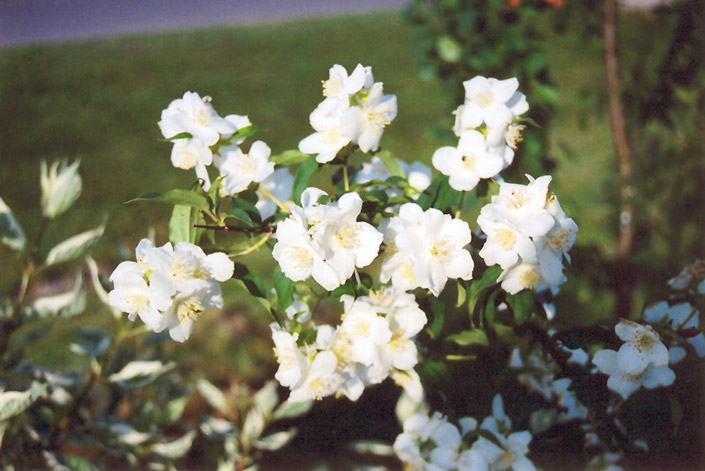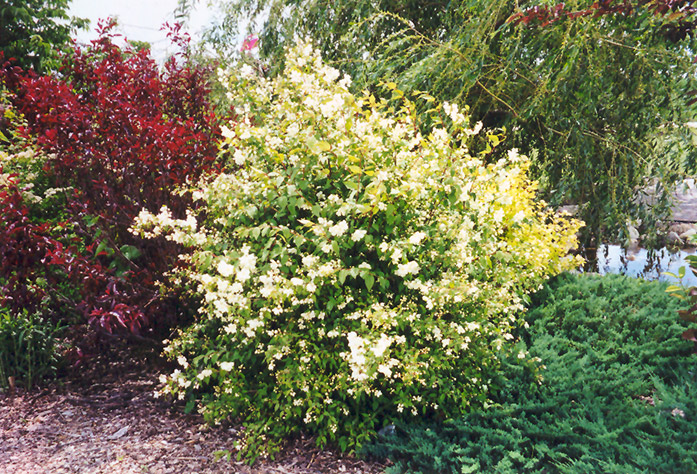Height: 10 feet
Spread: 10 feet
Sunlight:
![]()
![]()
Hardiness Zone: 2b
Other Names: Gordon's Mockorange, Indian Arrowwood
Description:
A large, sprawling shrub smothered in sweetly fragrant white blooms in early summer, recedes into the background the rest of the year; always use in conjunction with other plants that can take over the show; very adaptable and easy to grow
Ornamental Features
Lewis' Mockorange is covered in stunning clusters of fragrant white cup-shaped flowers with yellow eyes at the ends of the branches from late spring to early summer. It has green deciduous foliage. The serrated oval leaves do not develop any appreciable fall color.
Landscape Attributes
Lewis' Mockorange is a multi-stemmed deciduous shrub with an upright spreading habit of growth. Its relatively coarse texture can be used to stand it apart from other landscape plants with finer foliage.
This is a relatively low maintenance shrub, and should only be pruned after flowering to avoid removing any of the current season's flowers. It has no significant negative characteristics.
Lewis' Mockorange is recommended for the following landscape applications;
- Mass Planting
- Hedges/Screening
- General Garden Use
Planting & Growing
Lewis' Mockorange will grow to be about 10 feet tall at maturity, with a spread of 10 feet. It tends to be a little leggy, with a typical clearance of 2 feet from the ground, and is suitable for planting under power lines. It grows at a fast rate, and under ideal conditions can be expected to live for approximately 30 years.
This shrub does best in full sun to partial shade. It is very adaptable to both dry and moist locations, and should do just fine under average home landscape conditions. It may require supplemental watering during periods of drought or extended heat. It is not particular as to soil type or pH. It is highly tolerant of urban pollution and will even thrive in inner city environments. This species is native to parts of North America.


